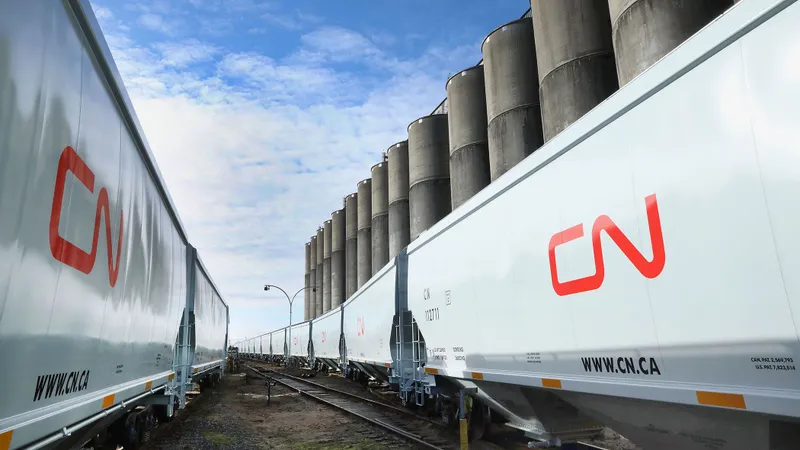The Teamsters Canada Rail Conference is challenging a government-mandated binding arbitration order that ended a brief lockout of union workers and resumed operations for Canada’s major rail carriers on Monday.
A spokesperson for the Canada Industrial Relations Board (CIRB) clarified in an email to Supply Chain Dive on Friday that the legal challenge does not override the board’s actions from the previous week. The CIRB’s decision enforced an August 22 directive from Canada’s Minister of Labour and Seniors, Steven MacKinnon. In this directive, MacKinnon instructed the CIRB to impose final binding arbitration to get union rail workers back to their jobs and to ensure Canadian National Railway (CN) and Canadian Pacific Kansas City (CPKC) were operational by August 26.
In the union’s court filing against CN, dated August 29, the labor group argued that the CIRB “failed to provide adequate procedural fairness to the TCRC before issuing the CIRB decision and CIRB order,” and claimed that the CIRB’s interpretation of Canadian labor codes “is unreasonable.”
The union, which represents about 6,000 CN workers and 3,300 at CPKC, stated in an emailed message to Supply Chain Dive on Friday that the government’s actions had stripped the labor group of its right to collective bargaining. “Without it, unions lose leverage to negotiate better wages and safer working conditions for all Canadians,” said union spokesperson Christopher Monette.
The union had previously announced that it would comply with the government’s return-to-work order but would appeal the directive. Both CN and CPKC stated they would also comply with the order. The government’s intervention prevents further labor disruptions through work stoppages or lockouts.
In an emailed statement on Friday, CN said it would have preferred to reach a negotiated settlement with the TCRC. “Arbitration is a neutral process that does not favor one party over another,” a CN spokesperson said. “It is specifically designed to resolve an impasse, and in this case, to prioritize the safety and economic security of all Canadians.” A CPKC spokesperson declined to comment when contacted by Supply Chain Dive on Friday.
